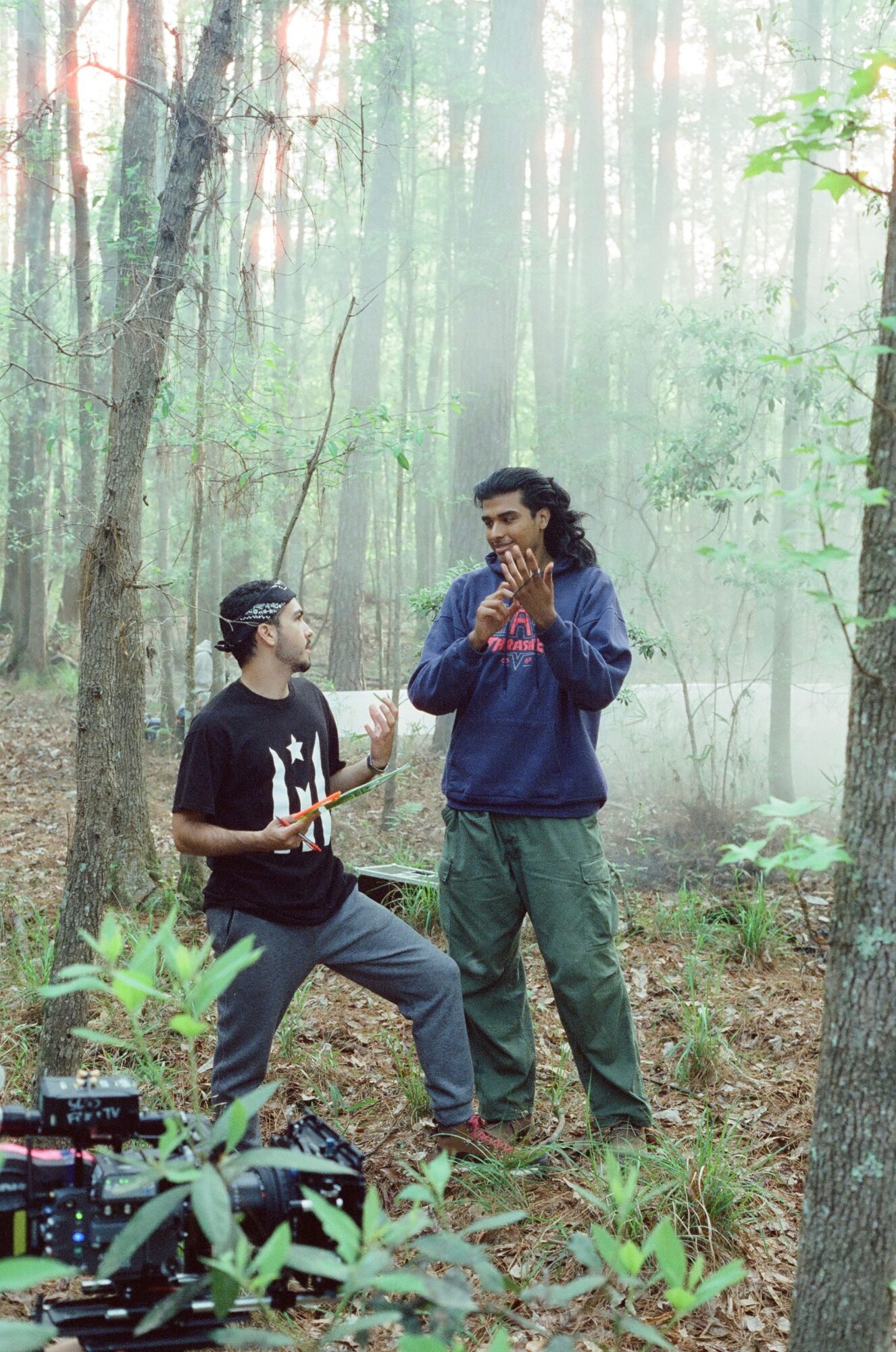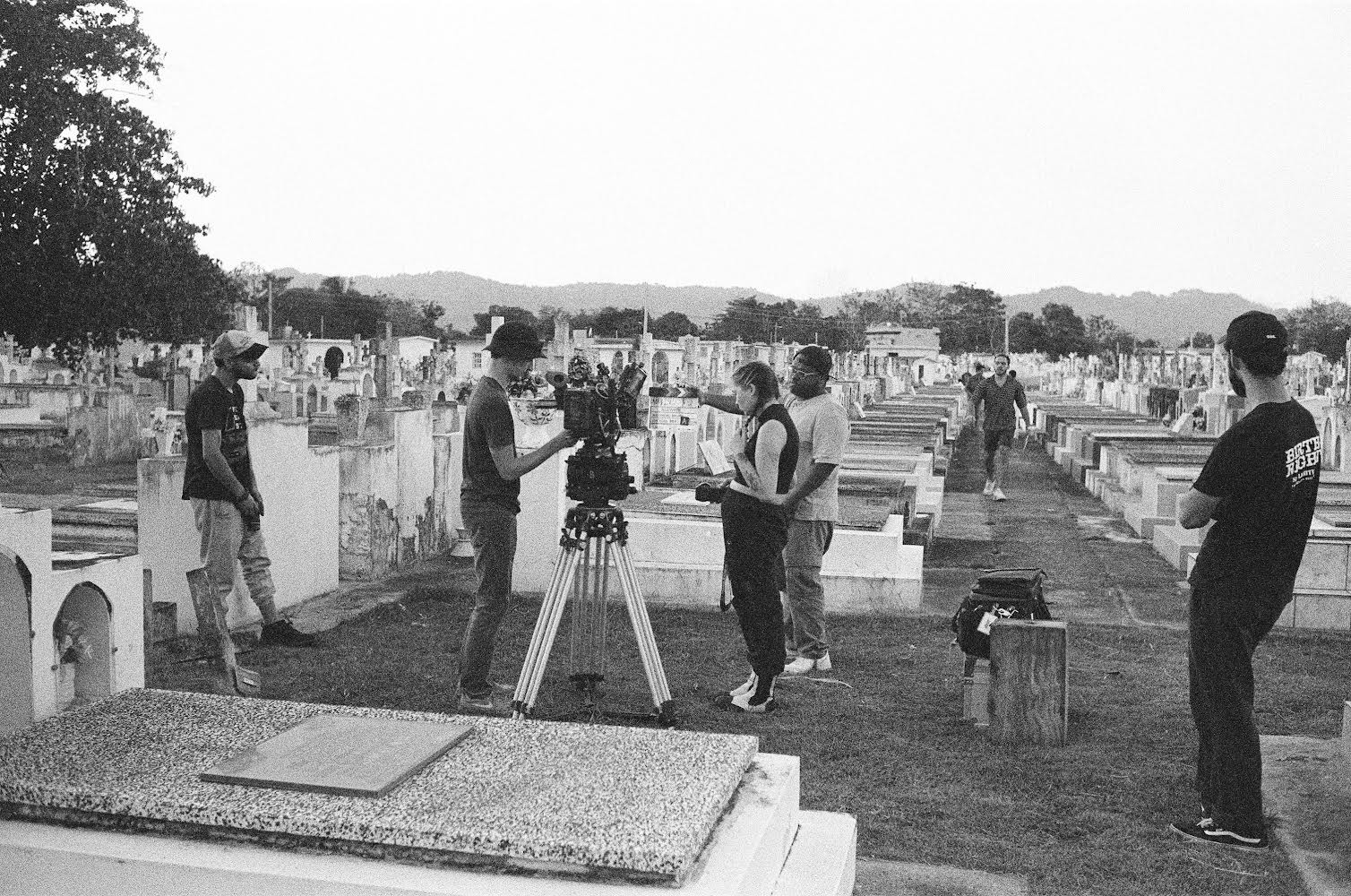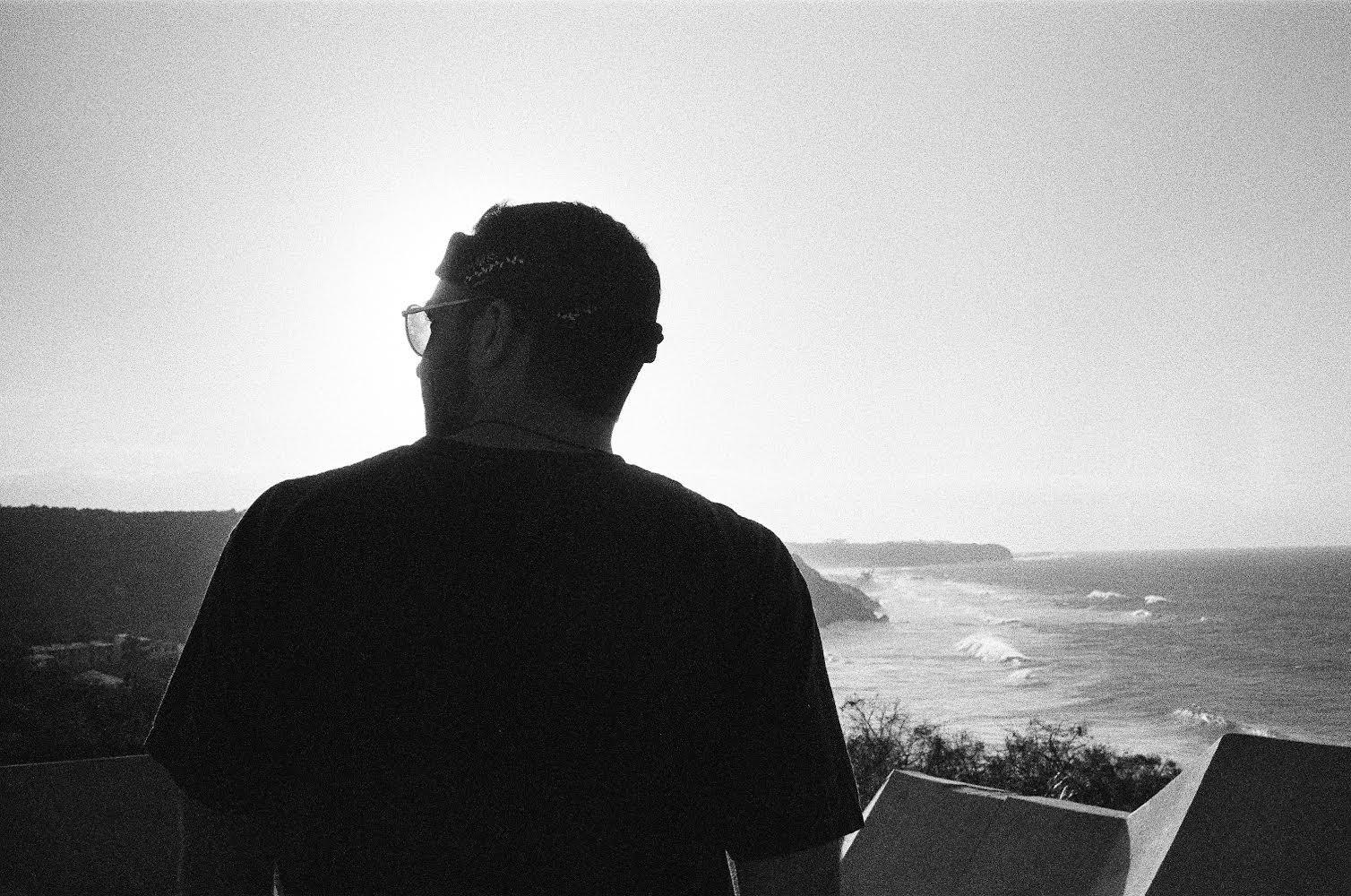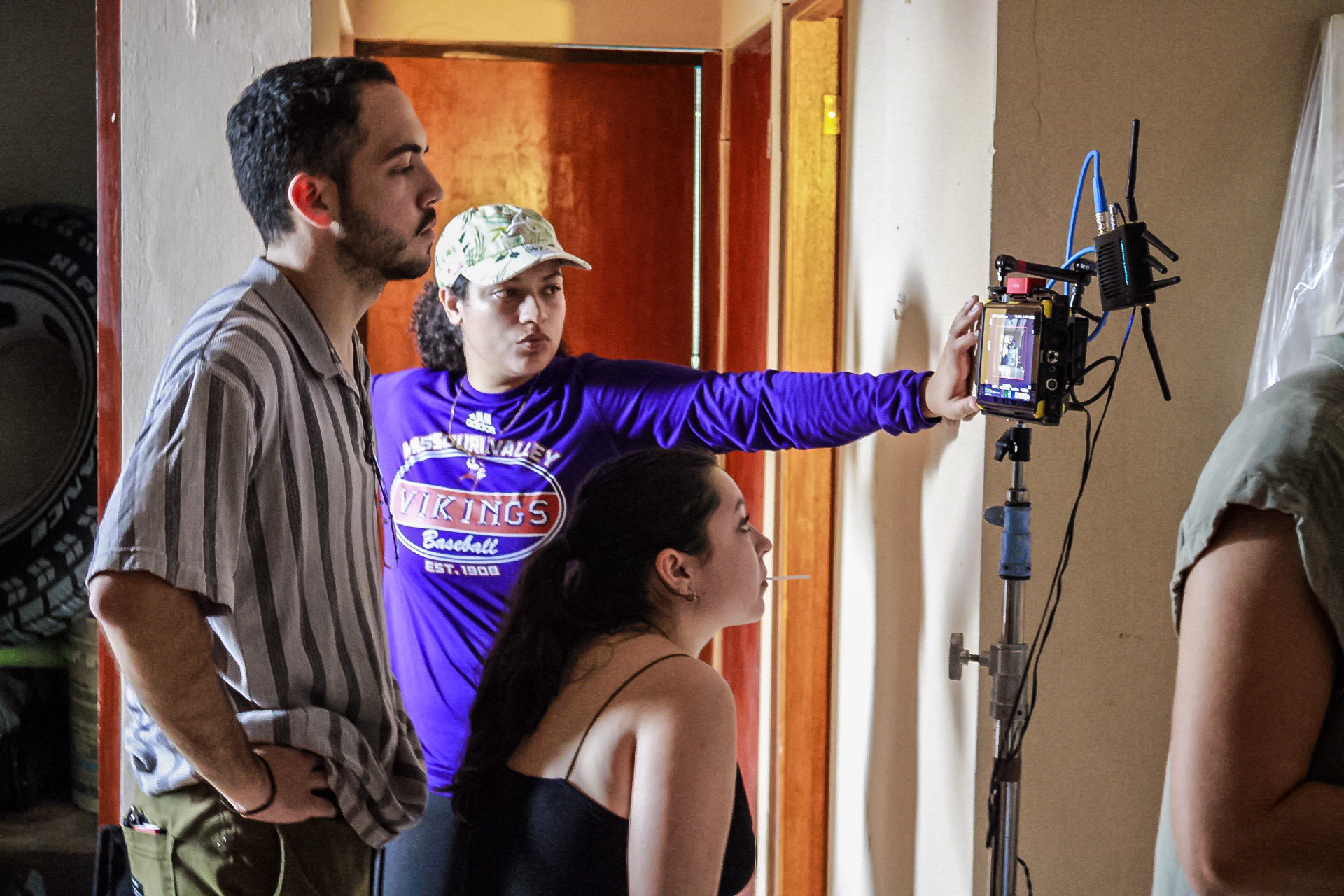

Today, we’d like to introduce you to Alejandro Medina.
Hi Alejandro, can you start by introducing yourself? We’d love to learn more about how you got to where you are today.
I feel my curiosity for filmmaking is something that has always been present. The earliest sign is perhaps me browsing through my uncle’s VHS collection when I was 5 or 6. It contained many films I would later grow up to learn about, watch, appreciate, or detest. I’ve always believed this is what initiated my love for movie watching.
Regardless, this exposure to films is something I know many people are familiar with, and perhaps they even have similar experiences, but for me, it became an obsession. I always wanted to watch films I was too young to understand or even to watch, but that never honestly stopped me. After information became so accessible through the internet, I spent my time researching and learning about cinema history, familiarizing myself with directors, their styles, and different movements. It is thanks to streaming that, in my teens, I was able to start watching as many films as I did and slowly went across titles off my list.
Of course, when you cross one title, you add two more, and now my list is longer than ever. As college was approaching, I needed to find that one thing that would define the rest of my life: what I wanted to major in. I was always pushed towards becoming an engineer or architect, and it’s something that I truthfully believed I wanted, but as the senior year of high school rolled around. College applications began. I knew those two paths might lead me to some stability, but they would bring no passion or fulfillment. It was a very tough decision, but I returned to what I enjoyed spending most of my time with.
I returned to what I obsessed over and to the one thing that genuinely made me happy: watching films and learning about cinema. It was a crazy thought. There were no other artists in my family. I didn’t know anyone who was an artist or even knew what studying film meant. I decided I needed to learn more. The more I learned about the process, the more and more I fell in love. My heart was set; this is what I wanted out of my life. I told myself that if I wanted to dedicate my life to this, there had to be something I could tell, and only I could tell. I found that story, and it has guided me ever since. It is my biggest goal, and I hope to tell it one day. It’s a story I’m still not ready to share, and I know it’ll take me years to get there.
After this revelation, I began applying to different film schools. I attended the Savannah College of Art & Design, majoring in Film & Television with a minor in Dramatic Writing. Throughout my four years at SCAD, I met my closest collaborators, who have been the greatest gifts from my time there. I found my mentors, and I met my wife. Being a student had its ups and downs; there were times when I felt like quitting school and times when I was grateful to be there. In the end, staying was the best decision I ever made. I met people from all over the world, was exposed to new perspectives, learned hands-on the process of making a film from development to distribution, grew as an artist and person and refined my original goal.
With my time away from home, I became more aware of what it meant to be Puerto Rican. I began to miss it for the first time as I was away. I had spent 18 years of my life there, and now, being in the US, away from home in a completely different environment, made me aware of my identity. It made me appreciate everything I had and understand where I come from and who I am. I began to learn more about my country, surround myself with the music and images, and wear them on my sleeve. My goal was no longer to tell that one story. It was to put Puerto Rican cinema on the map and push the art form there so the rest of the world could finally recognize Puerto Rico for its cinema.
We’ve never had a seat on the table, and to this day, until my last, I know I’ll keep trying to make that dream a reality. This leads me to my final year at SCAD. As a film student in the writing and directing track, I needed to make a short film for my thesis. I was scared because I knew the massive undertaking would be to pull off what I wanted. I decided I was going to make my thesis film in Puerto Rico. For almost an entire year, I worked tirelessly making this film. It proved to be the biggest challenge of my life. Not only was the preproduction being completed from Savannah, but some crew members were also traveling.
Thankfully, I had the help of my producer, Valentina Sanchez, who dedicated all her efforts to making this possible. Making this film brought us closer together than ever, and I’m happy to say we just got married. The film brought me love and my closest collaborators, whom I know will be the people I call every time I have a new project. I couldn’t be prouder of the film we created, and the odyssey it was to achieve makes the final product much more rewarding. The film is on a festival run, and we’ll see where it leads us.
After graduation, I began working as a freelance PA & Grip and continued expanding my network. I spend my days reading, writing, watching films, spending time with my wife and our dog, and working in the film industry here. We’ll see where the next few years take me. Now more than ever, I feel a responsibility to continue that dream.
Can you talk to us about the challenges and lessons you’ve learned? Looking back, would you say it’s been easy or smooth in retrospect?
It’s never easy. Looking back at the road, it might seem more straightforward than it was, but that is only because I’ve overcome those obstacles, I’ve learned from them, and they’ve made me better. The journey of becoming a filmmaker has been filled with challenges. One of the most significant struggles I faced was during the COVID-19 pandemic. As the world shut down, I returned to Puerto Rico, unsure of when I would return to college in Georgia.
The pandemic disrupted the film industry, and I felt lost, questioning what I was doing on this path. I made some short films with friends, but they never felt quite right. I used them more as an exercise than something serious. The uncertainty of the situation made me consider dropping out of college. Many things went through my head then, but after a serious conversation with my parents, I decided to push through and finish what I started. Returning to Georgia, I found my stride, meeting lifelong friends, collaborators, and even my wife.
It was a turning point where I discovered my voice as a filmmaker. Navigating the challenges of preparing a film shoot in Puerto Rico from Georgia with limited resources and industry connections was daunting. Despite the risks and countless hurdles, the experience was invaluable. It is the greatest challenge I’ve had to face, and in the end, it was worth every risk, headache, phone call, and stress because although I made many mistakes along the way, it has been what I am most proud of.
Through these challenges, I learned the importance of resilience and adaptation. Each obstacle has strengthened my determination and shaped my storytelling, influencing the films I create today. Despite the hardships, I am grateful for the journey, as it has made me who I am today.
Thanks – so, what else should our readers know about your work and what you’re currently focused on?
As a filmmaker, I specialize in storytelling that reflects my Puerto Rican heritage and explores themes of identity, culture, and resilience. My work is deeply rooted in my personal experiences and the stories of my community, aiming to shine a light on underrepresented voices and narratives. I am a writer and director first, but to make ends meet, I’ve also filled the role of 1st Assistant Director, Production Assistant, and Grip many times. One of the projects I’m most proud of is my thesis film, “Aguante,” which I made in Puerto Rico.
Despite the challenges of preparing and executing a film shoot from Georgia with limited resources, the experience was incredibly rewarding. The film not only allowed me to tell a story that is close to my heart but also gave me the opportunity to showcase the beauty of Puerto Rico and its rich cultural heritage.
My unique perspective as a Puerto Rican filmmaker living in the United States sets me apart from others. My background and experiences have shaped my storytelling style, which sometimes blends elements of magical realism with gritty realism to create emotionally resonant narratives. I believe that my commitment to authenticity and representation in storytelling sets me apart and allows me to connect with audiences on a deeper level.
Looking ahead, I am excited to continue exploring the stories of my community and pushing the boundaries of storytelling. I hope to inspire other filmmakers from underrepresented backgrounds to share their stories and make their voices heard in cinema.
What changes are you expecting over the next 5-10 years?
It’s hard to say; the industry is constantly evolving. I can only predict the things I’d be hopeful will change. Streaming platforms will still dominate in the next 5-10 years; perhaps some familiar streamers will have disappeared, and some new ones will appear, but the game will remain the same. While theaters may continue to thrive, particularly for blockbuster releases, there may be shifts in distribution strategies to accommodate evolving audience behaviors.
One promising trend is the growing acceptance of non-English language films in the US. Recent successes like “Parasite,” “Squid Game,” and “Money Heist” demonstrate an appetite for diverse storytelling and international content. As audiences become more accustomed to subtitles and explore stories from different cultural perspectives, there’s a tremendous opportunity for filmmakers to reach broader audiences and expand the boundaries of cinematic storytelling. This seems only a matter of time as our society becomes more globalized.
Despite the challenges, I’m optimistic about the future of the industry. Of course, there will be many advances in computer-generated imagery (CGI) and other VFX. Yet the only thing I am looking forward to is the acceptance of non-English language films because it means the movies I will one day make might have the chance of reaching an audience I never dreamed of. As a filmmaker, I’m excited to be part of an industry that’s constantly evolving, and I look forward to the opportunities that lie ahead.
Contact Info:
- Website: https://aguantefilm.com/
- Instagram: @amedinalfonso



 Image Credits
Image Credits
Jeremy Drouyn Pérez, Michelle Chwala, and Chris Feleppa













